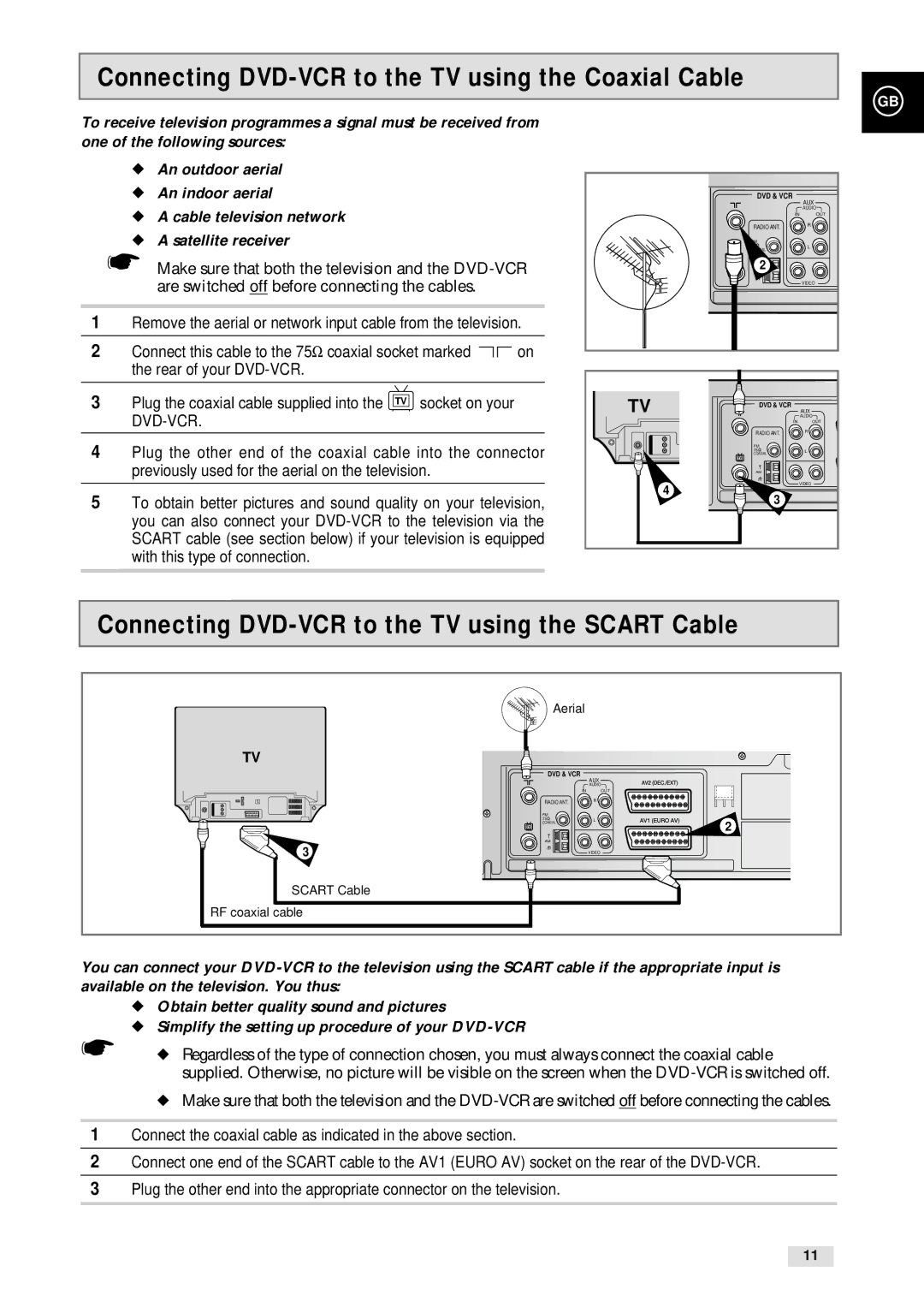
Connecting DVD-VCR to the TV using the Coaxial Cable
GB
To receive television programmes a signal must be received from one of the following sources:
◆An outdoor aerial
◆An indoor aerial
◆A cable television network
◆A satellite receiver
☛Make sure that both the television and the
1Remove the aerial or network input cable from the television.
2Connect this cable to the 75Ω coaxial socket marked ![]()
![]() on the rear of your
on the rear of your
3 | Plug the coaxial cable supplied into the |
| TV |
| socket on your |
| |||||
|
| ||||
|
|
|
|
|
|
4Plug the other end of the coaxial cable into the connector previously used for the aerial on the television.
5To obtain better pictures and sound quality on your television, you can also connect your
| DVD & VCR | AUX |
|
| |
|
| AUDIO |
| IN | OUT |
| . | R |
|
| |
|
| L |
| 2 |
|
|
| VIDEO |
TV | DVD & VCR | AUX |
| ||
|
| AUDIO |
| IN | OUT |
| RADIO ANT. | R |
| FM |
|
| 75 | L |
| COAXIAL |
|
| AM |
|
| VIDEO | |
| 4 |
|
| 3 |
|
Connecting DVD-VCR to the TV using the SCART Cable
Aerial |
|
TV |
|
DVD & VCR | AUX |
| |
| AUDIO |
IN | OUT |
RADIO ANT. | R |
| |
FM |
|
75 | L |
COAXIAL | 2 |
| |
AM |
|
3 | VIDEO |
| |
SCART Cable |
|
RF coaxial cable |
|
You can connect your
◆Obtain better quality sound and pictures
◆Simplify the setting up procedure of your
☛◆ Regardless of the type of connection chosen, you must always connect the coaxial cable supplied. Otherwise, no picture will be visible on the screen when the
◆ Make sure that both the television and the
1Connect the coaxial cable as indicated in the above section.
2Connect one end of the SCART cable to the AV1 (EURO AV) socket on the rear of the
3Plug the other end into the appropriate connector on the television.
11
